Judas Priest back to ‘redeem’ metal souls
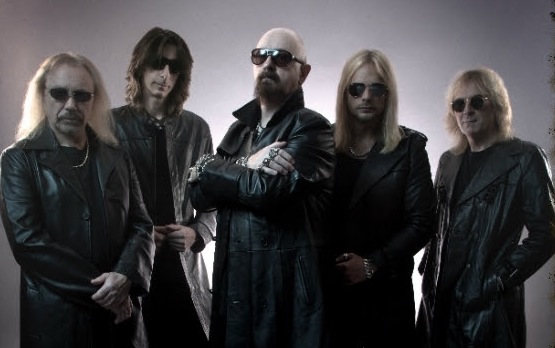
Only a few years after making an official announcement about retirement, Judas Priest is back and emboldened, armed with a strong new album Redeemer of Souls (their 17th studio effort) and select tour dates.
It appears the addition of guitarist Richie Faulkner was a critical catalyst in Priest’s second thoughts regarding retirement. During the course of the Epitaph (“farewell”) tour, Faulkner’s enthusiasm pushed the band’s spirit to reclaimed heights and he soon started to get the other members of Priest involved in writing songs again.
Much of Faulkner’s songwriting efforts on Redeemer of Souls sound greatly influenced by vintage Priest (1975-1980); enough to get any diehard Priest fan excited about this next chapter in the band’s legacy.
The following is an interview with guitarists Glenn Tipton and Faulkner about the latest album, Redeemer of Souls, and the brand new enthusiasm of the band.
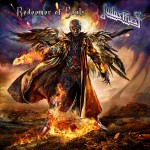 The new album, Redeemer of Souls … my first impression was: great, classic guitar riffs and opening Priest chords. Kind of reminding me of songs like “Genocide” or “Tyrant” — which is straight to my heart.
The new album, Redeemer of Souls … my first impression was: great, classic guitar riffs and opening Priest chords. Kind of reminding me of songs like “Genocide” or “Tyrant” — which is straight to my heart.
Richie Faulkner: It’s great to hear. We say this all the time but whenever we speak to someone and they’ve got their own opinion, and it could be the same song, you know, you say “Genocide” or “Tyrant,” someone else would say, ‘it reminded me of this’ — totally different, but it’s got that essence and character that you’re familiar with that is inherently and immediately Judas Priest.
Now, Richie, did you grow up loving that kind of older [vintage] Priest?
Faulkner: I got introduced to the band through Painkiller. I was aware of songs like “Breaking the Law” and “Living After Midnight,” but you don’t put a face to the name, if you know what I mean. So I went back through the catalog and found great tracks like “Tyrant” and “Genocide” and all that sort of stuff that came before. And it was a great experience.
I wondered if you were influenced by that old stuff. Because it feels like you brought some of that vibe back.
Glenn Tipton: Oh yeah, there’s no doubt that Richie’s brought a lot of ‘enthusiasm’ back to the band. To use just one word. He’s cracked the whip a little bit and he’s pushed me and kept me on my toes.
It’s been like a spark …
Faulkner: I think it’s the integral part of the band, where they started, through the progressive blues. I was introduced to the guitar by Hendrix, so even there there’s a similarity. And then the band crafted Heavy Metal, which I was then influenced by. Somewhere in my teenage years I learned to create songs and metal songs … the double guitar approach was always an integral part of my playing. So, when we were writing this record it was instinctive, really.
Tipton: The most amazing thing, you know, is whatever ideas Richie has come up with have been so in line with where we’ve always been at. That’s the most amazing thing. I can’t think of one idea that Richie came up with that just wasn’t so appropriate to Judas Priest.
When you said ‘progressive blues,’ that pretty much sums up the ’70s Priest sound. That’s the Priest I love in particular and a song like “Crossfire,” off the new album, when I first heard that song I was like ‘Wow.’ That just blew me away. I loved it. It sounded like the hard-riffed blues from Rocka Rolla.
Faulkner: That’s a perfect example. The opening riff is very rooted in the blues. And it’s a perfect example of what we were just saying. The opening riff is something I came up with. So that was ingrained in my musical upbringing, as much as the band’s. You know, there’s a difference in age but from an influence point of view, my influences make perfect sense with what the band has done and is doing now. Again, if it works as a song, it’s where the band comes from and it makes sense, just go with. It was completely free to do that in the studio, so it had that kind of dynamic.
Tipton: It’s also incredible that it’s that sort of a blues riff and came up with it now. It’s so retro. It has everything going for it, you know. It’s great now and it’s great in a retro perspective in regards to a Judas Priest song. It was just so enjoyable to write the song.
And Rocka Rolla was put out in 1974, so it’s the album’s 40-year anniversary.
Tipton: There are a lot of days falling in line, strangely. 40-year anniversary. 30-year anniversary with Defenders of the Faith. A lot of coincidental things happening. It could be a sign from God (smiles). A message from God.
Did you ever think of putting out special albums or material to commemorative these anniversaries?
Tipton: Well, this [Redeemer of Souls] sort of is, isn’t it really, in a way?
Faulkner: It is. I mean, Rob said it before. A great word is ‘reaffirmation.’ It’s a reaffirmation of everything Priest stood for over the years. From the blues to metal. That essence of Judas Priest. If there ever was a 40th anniversary record, I mean, it’s not that but it could be, without saying, ‘oh we’re gonna make an anniversary record,’ which is almost a bit cheesy. This is doing it in a way which is kind of organic but forging forward, maybe not looking back in the same sense.
The new album has a nice diversity. You have “Crossfire” and then you have a “Metalizer,” so it does kind of cover the whole history of the band’s sound. I picked up this quote from Rob where he says “Every record that we’ve made, we’ve tried to give it some distinction, some separate identity.” But this album is kind of like the perfect release now, at the right time, where it covers the whole history of the band.
Faulkner: It’s all part of the band’s makeup as far as I’m concerned. We didn’t specifically go back and revisit — consciously — parts of the band’s history. We just wanted to go in and write something very true and very natural. And the band’s character has been so strong over 40 years. I don’t know quite how that happens but that’s the magic of a band like Priest that’s forged ahead. You can write stuff that comes from the heart and it sounds like Judas Priest. It’s inherently Judas Priest.
The album also seems stripped of production effects, like the band [performing] live.
Faulkner: It was pure from the writing process, from where the songs came from, to the production, to the recording. It was just very pure and honest and let the character of the band speak for itself. I think it does that.
As a collector, I like how you put out a deluxe edition [of Redeemer of Souls] with five extra songs. I think fans like that.
Tipton: I know what you mean. But that’s not the reason we did it. We did it because we felt those five tracks were great — we didn’t want to not use them or the fans not to hear them — but we just didn’t think they went with or followed the 13 tracks that went on the normal album. This way around they have the choice, they can buy either of them. It’s a good thing.
One of the extra songs, “Creatures,” has a great guitar solo on it.
Faulkner: It’s a great vibe. It’s reminiscent of “The Ripper.” You can hear and you can see the creatures. That kind of creeping through the streets and stuff. Just a great atmospheric track. Again, it didn’t quite fit in with the vibe of the statement of Redeemer as a record, but, nonetheless, Priest fans are going to pick up on that. And that might be their favorite track of the whole 18 tracks, you know.
Tipton: “Creatures” is a great song and I love what Richie does with the whammy bar.
It’s like a song within itself.
Faulkner: One of the great things about being in Priest as a lead guitar player is that, you know, you come into a new band and you can quite easily try to do as many notes as you can to impress everyone. But you can’t really do that in Priest, and as a fan, I know that. Priest solos, you sing along with them. And on the Epitaph Tour [2011] I witnessed that first hand. There were kids out there singing the solos as I was playing them. And as Glenn was playing them. And it was nice to see. So it was a challenge in a way to come up with them. It would be easy to play a million notes and not really say anything but you got to be representative of that legacy that you are now part of. You’ve go to put forward that same sort of thing.
[pullquote_right]The thing is, with lead breaks, they shouldn’t be there if they don’t do the song justice. — Glenn Tipton[/pullquote_right]
Yeah, the lead in “Beyond the Realms of Death” is just as important as anything in the song.
Faulkner: Absolutely, it encapsulates the whole thing.
Tipton: The thing is, with lead breaks, they shouldn’t be there if they don’t do the song justice; they shouldn’t be part of the song. ‘Ok. Let me show what I can do,” that’s got nothing to do with the song at all. It should always have something to do with it and be an integral part of the song and therefore improve the composition of the song. That’s how I feel.
And “Metalizer” keeps in line with the modern Priest song. That’s another song that stands out on Redeemer of Souls.
Faulkner: That was an interesting one. Glenn and Rob were kicking a few ideas around before I joined the band and that was one of them. And those songs were put into the writing sessions as well, as what needed to be improved or worked upon or changed … whatever could be added or taken away for the better of the song. That was one of them. The original chorus wasn’t working in our opinion and it was one of those [songs] that I had something to go in there perfectly, we tried it out, and it worked. Something that they were working on in 2011 and I had a riff in 2012 and they were just married together and kept the same sentiment of the song. That was it … boom.
Rob’s voice really holds up. His voice has gone through an evolution itself. There’s the modern Rob voice where his scream is different than say, “Never Satisfied.”
Faulkner: I can imagine from a singer, from any creative person, you’re not always doing the same thing all the time.
His voice has changed, too.
Faulkner: It changes. You find new challenges as an individual. If you had done the same thing all the time I think it would get boring for any musician or any creative person. I think what Rob does on this record — as Glenn was saying with lead guitar solos — if it doesn’t fit the track it’s not really worth doing. You could scream through the whole thing but if it doesn’t fit …. you couldn’t do it on “Crossfire,” for example. That’s not what the song’s about. I think he used it very tastefully. He uses his screams every now and then, in the right places which makes them even more impactful when they do come in.
And the track “Beginning of the End” reminds me of “Last Rose of Summer” [off 1977’s Sin After Sin].
Faulkner: I knew you were going to say something different the way you’re thinking. It’s funny, someone said yesterday that it was like “Before the Dawn.” And I’m thinking you’re not gonna say that because someone else said that, you know. But it’s got the same essence of Priest. It is a great closer to the record. It inspires different emotions. We get the question all the time, don’t we? ‘What does it mean?’
Tipton: And it’s also the sentiment of it. It’s not the end. It’s the beginning of the end. The end could be a long way away. It could be 10 years. It could be 20 years. Forever. It could be infinity, so … It’s very appropriate and very poignant.
There’s also another song, “Never Forget,” off the deluxe edition, that’s like that, too.
Tipton: Again, it’s is our way of saying thank you to our fans. What’s that one line there? It’s not goodbye, my friends. It’s just farewell. And, again, you can take that any way you like but the song really is about the band saying a big thank you to the fans for the support they’ve given us in our early years. What better way to say it than in a song? I mean, that’s what it’s all about.
Faulkner: When we were putting that track together in the studio, Glenn’s guitar tech was around. He was in tears — he was literally in tears — during “Never Forget.” Because I guess being with the band like he has for a few years, all those emotions came back to him. It was that powerful for him.
Is there a meaning behind Redeemer of Souls?
Tipton: It’s this guy — he could be good and he could be bad, and you don’t want to piss him off. And everybody’s got a few souls that might need to be redeemed. He’s just one of these Priest beings. And there’s been a lot of Priest beings: Hellion, Exciter … .. we always had creatures, haven’t we?
Richie, when you first joined the band there must have been certain feelings about it, and compare that to the first time recording with the band. Was it the same kind of feeling? Was there nervousness? Sounds like you just fit right in as you did live.
Faulkner: It’s been an evolution from day one. Some things have changed. Some things have evolved and progressed. And some things had stayed the same. In the sense that from day one it’s been inclusive. It’s been a family. You know, ‘What do you think? How do we improve this?’ It’s not a dictatorship, you know. So, “How do we change the set list for the better?’ ‘How do we change the stage production for the better?’ Right on into ‘What ideas you got for the new record?’ ‘How do we change this song to make it better?’ So those are the things that stayed the same through the whole experience in the band. And on the other side you have things that have progressed. First of all, it was just in a live scenario, being accepted by the fans, playing those great songs throughout all those countries. And then going into the studio. So it’s been an evolution as well. With a constant family feeling underneath it all.
It was probably better that you started performing with the band before going into the studio.
Tipton: I agree with that, 100 percent, yeah.
Faulkner: On a creative level as well. You can always look back and join the dots looking back. But when you look back like that you think that it’s probably why it worked so well. You build relationships with the guys and with each other as a unit very quickly under condensed kind of situations. You build trust. You value each other’s opinions. And then you digest all this music —over 40 years. That’s what we were doing night after night after night. There was stuff from Rocka Rolla, there was stuff from Defenders, there was stuff from Painkiller, there was stuff from Nostradamus, it was all seeping in, so then when you get to the writing process, again, you’ve built up relationships, you trust each other, and you just digested the 40-year back catalog. So you’re all on the same page both personally and creatively. And looking back at it it makes perfect sense. From the acceptance side as well, from the fans, you almost prove your colors from the live set, and the next stage you’re proving your colors. So it’s a natural progression.
When Priest typically records an album, do two guitarists record at the same time, especially with the dual guitar parts?
Tipton: Not necessarily. We normally put a click track down first and then do some guitars and get the arrangement right. Let Rob scat on some vocals but actually tape his vocals a lot of the time because if he’s got any lyrics that are appropriate it can be a part of the song, and where his performance is better because he’s not trying to go up there thinking this has got to be right. So it’s good to give Rob freedom sometime. So we have used Rob’s scat vocals or screams or sounds and things like that. And then we put the guitar tracks down, then bass, usually the drums are coming towards the end because then you know where the fills should be and they’re not interfering with the vocals and that. With this album it wasn’t quite like that because we wanted more of a live sounding album. I’m not saying we went down into the studio and put it down and didn’t [do] takes but we did try to capture a live sound and feel for the whole album. The drums are all recorded. There’s no programming. There’s no processed guitars. And the bass is naturally played and the drums. And Rob’s vocals … we didn’t need to correct them too much because Rob’s vocals are incredible, particularly for his age. They stood up so well through the years. And it all fell into place and it’s got a live feel to it. And at the end of the day, Priest are first and foremost a live band.
Well, you definitely accomplished it on this album.
Tipton: That’s what we tried to do.
How about for you, Glenn … it obviously felt different for you, having a different guitarist after [years with] K.K.?
Tipton: We instantly hit it off, Richie and I. And we did some writing on the the road. Richie more than me, really. As you said, to play a song off every album, really is a great way to get the vibe to start you writing and that’s what we did. And the way we’ve always written music. You got ideas, pool them, sorted them through, and songs formulate. Nothing really changed. It was great. It was fantastic.
[pullquote_left]I wouldn’t rule out another studio record. — Richie Faulkner[/pullquote_left]
You’re going to to be doing a set of dates in America in the fall. Any surprises for the fans? Fans love when you pull out a song that they would not expect.
Tipton: We’re thinking of a set list as we speak. It’s difficult as always to know what to play and what not to play. You’ve got to do at least four or five off the new album.
Well, I know “Last Rose of Summer” won’t be on there [the set list] (laughs).
Faulkner: If we were to play everything we wanted to play we’d be there for a month. We’d do like Prince — 30 nights at the O2 in London because you’d have to do that long to do everything you’d wanted to do. But you got to condense everything in a night out.
I always wanted to hear “Here Come the Tears” going into “Dissident Aggressor” live. I’ve always thought those two songs were perfect for each other [on Sin After Sin].
Tipton: The difference is between a low-key song and then the impact of heavy guitars coming, makes things heavier. That’s why we often mixed those [songs] together.
Since you’ve done British Steel in its entirety, would you ever perform another album live in its entirety?
Tipton: Well, there’s been talk of Defenders of the Faith because of the 30-year anniversary. Pick out any Priest album if you wanted to. We’d be playing for the next 40 years.
Is this tour going to be just select dates?
Tipton: We’re not sure. We started putting dates in and more dates are being offered now. I think we’re going to play a little bit by ear. But there will be more dates, I’m sure.
Faulkner: These things always evolve. You start off doing the U.S. and more offers come in and the tour grows. You do Japan and you can’t do Japan without doing Europe, you know what I mean? So it does have a way of evolving. Keep checking back on the website (www.judaspriest.com). There are more dates being added in the States as we speak.
A lot of comments from fans about bands retiring is “Ah, they’re not really retiring. They’ll be back.” It seems to be an ongoing thing.
Tipton: Well, it’s easy to understand, you know. We meant it genuinely when we said it was our last world tour. It will be our last world tour as such, but that’s not to say it’s gonna be our last dates. You know, time changes things. Richie came along. When we put together the Epitaph tour, we hadn’t found Richie yet. Richie hadn’t found us. Fate hadn’t put us together, so things change. Richie joined the band, injected a lot of enthusiasm into the band. Retiring as well … Rob said ‘what are we going to do, sit at home, sit in an armchair and think, what’s there to do this afternoon? Maybe I’ll go write a song and maybe think about going on tour again.’ We genuinely meant what we said. It wasn’t just to try to sell more tickets. Things change.
And do you think the band will keep recording, even when you stop touring?
Tipton: Who knows. It’s very dangerous territory now to make statements (smiles).
Faulkner: Based upon the new album and on how much material we came up with, and how easy it flowed from everyone on this record, I wouldn’t rule out another studio record. I mean, you never know. You never know what’s going to happen and why it will be or why it might not be. But just based purely on the creative juices of these sessions, I wouldn’t rule it out completely.

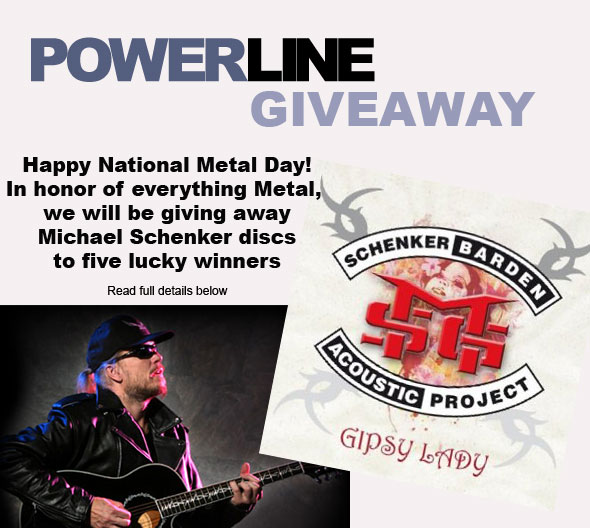
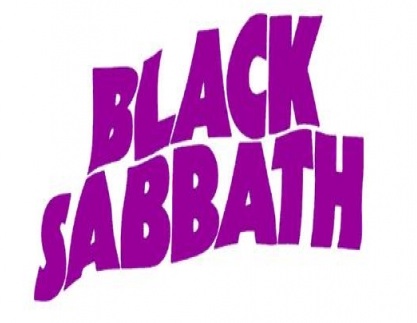
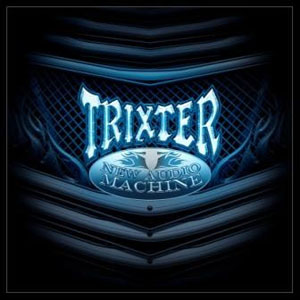
I saw Priest along with several other well known bands such as Scorps, Van Halen and Ozzy to name a few, back in ’82 or ’83 at the (250,000 rabid fans) US fvtiseal in the S. Californian desert. I was about 15 yrs old at the time, it was just as Bruce Dickenson descibes it, like a panzer assault rolling over your head .They blew my mind. I then caught them in Reno sometime in the mid 2000 s. That time I took my wife and daughter thinking, they are probably going to be less than excellent’, as I was sure they would have lost a step as they say in sports. I went anyway hoping for the best without high expectations, happy to report, they kicked some major a s s and did not disapoint, believe me. I would put them up against any band at any time. The term Profesionals comes to mind. Rob Halford can STILL frighten pit bulls with his vintage ear piercing screams and the tandem of Downing and Tipton was spot on as always!!!